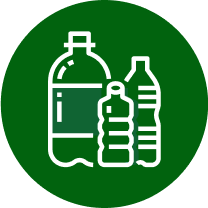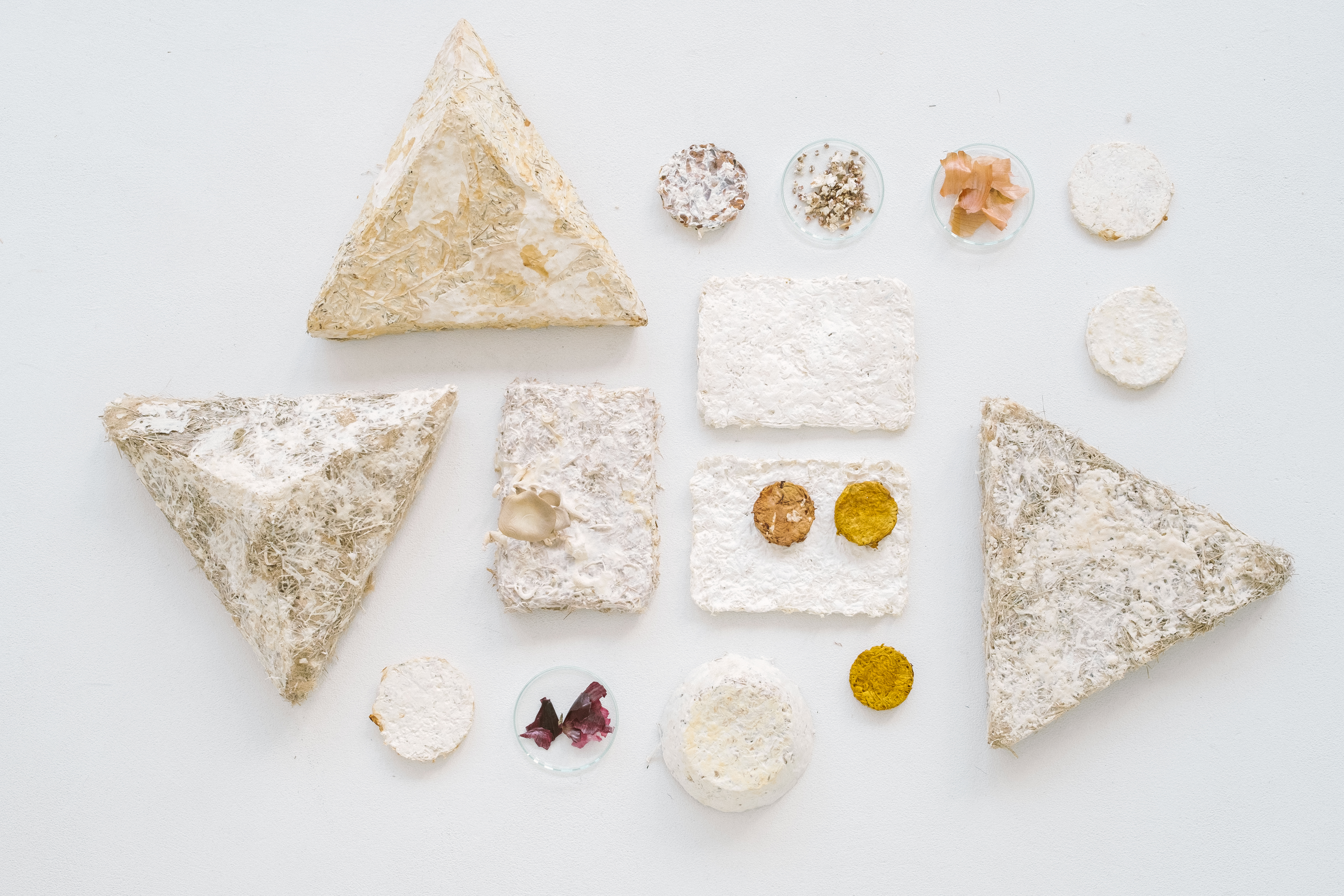Problem statement
The construction and packaging industries face serious sustainability challenges, jointly accounting for over two-thirds of global municipal waste and GHG emissions. The EU aims to reduce packaging pollution by 15% by 2040, creating pressure for viable alternatives. Fossil-based materials dominate both industries, lacking sustainable end-of-life solutions. There is an urgent need for biodegradable, bio-based alternatives that are scalable, cost-effective, and reduce environmental impact while maintaining functional performance.
Main outcome
The project demonstrates how locally developed, bio-based mycelium composites can support the green transition. These materials offer long-term carbon sequestration and promote circular economy practices by utilizing agricultural waste. Their compostable and downcyclable nature allows for low-impact disposal or reuse. The process fosters cross-sector collaboration and supports local businesses through sustainable production models. This innovation presents a scalable, eco-friendly alternative to conventional materials in both architecture and packaging applications.










